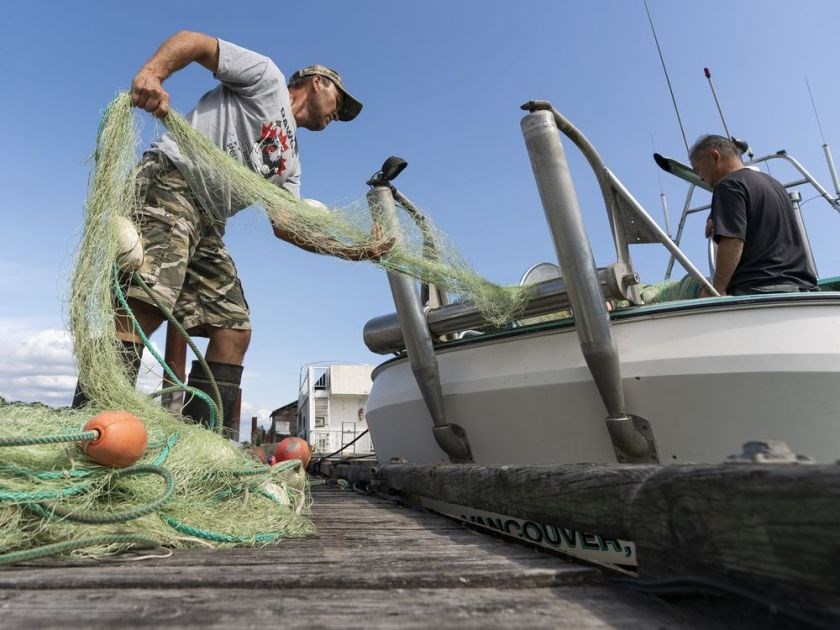The West Coast commercial fishing sector has been pushed to the brink, and the union that represents fishermen blames climate change and poor management by the Department of Fisheries and Oceans.
Unifor is calling on Canada’s new minister of Fisheries and Oceans, Bernadette Jordan, to step up with assistance for B.C. fishermen who are going under.
A new study published by Unifor says “artificially low” catch limits for the commercial salmon fishing sector over the past 25 years brought the sector to the brink, and 2019’s virtual collapse of Fraser River sockeye is now pushing them over.
“The federal government created a commercial fishing economy so precarious that when the salmon collapsed this year, the industry went with it,” Unifor president Jerry Dias said in a statement. “Commercial salmon fishing may never recover.”
Last year was the worst on record for Fraser River sockeye returns, and one of the best on record for Alaska.
In 2019, the total number of salmon — all species — caught by the commercial sector in B.C. was just 629,000 fish. That is the lowest catch in 70 years, Unifor says in its study, which is based on data on Pacific salmon abundance published by Greg Ruggerone and James Irvine.
Climate change is believed to be behind a literal push that has moved Pacific salmon abundance north, into Alaska and Russia. It also appears to have favoured pink salmon, which are thriving, while other salmon stocks, such as chinook, especially in southern ranges, experience a long decline.
But even before southern range Pacific salmon began a decline in abundance, the commercial catch for B.C. had been decreasing disproportionately to abundance, according to Unifor.
“The report shows that, until 2019, the overall number of salmon returning to B.C. remained stable for 63 years, yet the commercial fishing catch limits set by the federal government declined sharply in the mid-1990s without justification,” Unifor said.
“Artificially low limits together with dropping landed value combined to undermine the livelihoods of the entire commercial fishing fleet on British Columbia’s coast.”
Unifor is appealing to the federal government for emergency financial aid. “Help from the federal government is beyond urgent,” said Joy Thorkelson, president of the United Fishermen and Allied Workers’ Union.
“Hundreds of fish harvesters are facing financial ruin after decades of fisheries regulation mismanagement.”
The union is also calling on the federal government to come up with a climate change adaptation plan for the West coast fishing sector.



